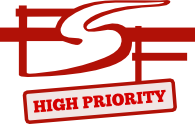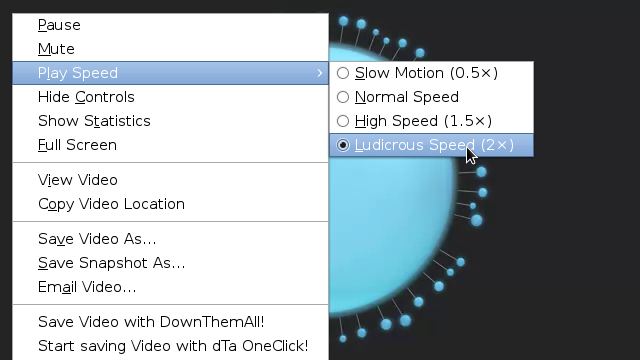First, two excerpts of my previous posts to explain my rationale for this one. 10 months ago:
I wonder the extent to which reform of any institution, dominant or otherwise, away from capture and enclosure, toward the benefit and participation of all its constituents, might be characterized as commoning?
Whatever the scope of commoning, we don’t know how to do it very well. How to provision and govern resources, even knowledge, without exclusivity and control, can boggle the mind. I suspect there is tremendous room to increase the freedom and equality of all humans through learning-by-doing (and researching) more activities in a commons-orientated way. One might say our lack of knowledge about the commons is a tragedy.
26:
Other than envious destruction of power (the relevant definition and causes of which being tenuous, making effective action much harder) and gradual construction of alternatives, how can one be a democrat? I suspect more accurate information and more randomness are important — I’ll sometimes express this very specifically as enthusiasm for futarchy and sortition — but I’m also interested in whatever small increases in accurate information and randomness might be feasible, at every scale and granularity — global governance to small organizations, event probabilities to empirically validated practices.
…
I read about the Governance Lab @ NYU (GovLab) in a forward of a press release:
Combining empirical research with real-world experiments, the Research Network will study what happens when governments and institutions open themselves to diverse participation, pursue collaborative problem-solving, and seek input and expertise from a range of people.
That sounded interesting, perhaps not deceivingly — as I browsed the site, open tabs accumulated. Notes on some of those follow.
GovLab’s hypothesis:
When institutions open themselves to diverse participation and collaborative problem solving, they become more effective and the decisions they make are more legitimate.
I like this coupling of effectiveness and legitimacy. Another way of saying politics isn’t about policy is that governance isn’t about effectiveness, but about legitimizing power. I used to scoff at the concept of legitimacy, and my mind still boggles at arrangements passing as “legitimate” that enable mass murder, torture, and incarceration. But our arrangements are incredibly path dependent and hard to improve; now I try to charitably consider legitimacy a very useful shorthand for arrangements that have some widely understood and accepted level of effectiveness. Somewhat less charitably: at least they’ve survived, and one can do a lot worse than copying survivors. Arrangements based on open and diverse participation and collaborative problem solving are hard to legitimate: not only do they undermine what legitimacy is often really about, it is hard to see how they can work in theory or practice, relative to hierarchical command and control. Explicitly tackling effectiveness and legitimacy separately and together might be more useful than assuming one implies the other, or ignoring one of them. Refutation of the hypothesis would also be useful: many people could refocus on increasing the effectiveness and legitimacy of hierarchical, closed systems.
If We Only Knew:
What are the essential questions that if answered could help accelerate the transformation of how we solve public problems and provide for public goods?
The list of questions isn’t that impressive, but not bad either. The idea that such a list should be articulated is great. Every project ought maintain such a list of essential questions pertinent to the project’s ends!
Proposal 13 for ICANN: Provide an Adjudication Function by Establishing “Citizen” Juries (emphasis in original):
As one means to enhance accountability – through greater engagement with the global public during decision-making and through increased oversight of ICANN officials after the fact – ICANN could pilot the use of randomly assigned small public groups of individuals to whom staff and volunteer officials would be required to report over a given time period (i.e. “citizen” juries). The Panel proposes citizen juries rather than a court system, namely because these juries are lightweight, highly democratic and require limited bureaucracy. It is not to the exclusion of other proposals for adjudicatory mechanisms.
Anyone interested in random selection and juries has to be at least a little interesting, and on the right track. Or so I’ve thought since hearing about the idea of science courts and whatever my first encounter with sortition advocacy was (forgotten, but see most recent), both long ago.
Quote in a quote:
“The largest factor in predicting group intelligence was the equality of conversational turn-taking.”
What does that say about:
- Mailing lists and similar fora used by projects and organizations, often dominated by loudmouths (to say nothing of meetings dominated by high-status talkers);
- Mass media, including social media dominated by power law winners?
Surely it isn’t pretty for the intelligence of relevant groups. But perhaps impetus to actually implement measures often discussed when a forum gets out of control (e.g., volume or flamewars) such as automated throttling, among many other things. On the bright side, there could be lots of low hanging fruit. On the dim side, I’m surely making extrapolations (second bullet especially) unsupported by research I haven’t read!
Coordinating the Commons: Diversity & Dynamics in Open Collaborations, excerpt from a dissertation:
Learning from Wikipedia’s successes and failures can help researchers and designers understand how to support open collaborations in other domains — such as Free/Libre Open Source Software, Citizen Science, and Citizen Journalism. […] To inquire further, I have designed a new editor peer support space, the Wikipedia Teahouse, based on the findings from my empirical studies. The Teahouse is a volunteer-driven project that provides a welcoming and engaging environment in which new editors can learn how to be productive members of the Wikipedia community, with the goal of increasing the number and diversity of newcomers who go on to make substantial contributions to Wikipedia.
Interesting for a few reasons:
- I like the title, cf. commons coordination (though I was primarily thinking of inter-project/movement coordination);
- OpenHatchy;
- I like the further inquiry’s usefulness for research and the researched community;
- Improving the effectiveness of mass collaboration is important, including for its policy effects.
Back to the press release:
Support for the Network from Google.org will be used to build technology platforms to solve problems more openly and to run agile, real-world, empirical experiments with institutional partners such as governments and NGOs to discover what can enhance collaboration and decision-making in the public interest.
I hope those technology platforms will be open to audit and improvement by the public, i.e., free/open source software. GovLab’s site being under an open license (CC-BY-SA) could be a small positive indicator (perhaps not rising to the level of an essential question for anyone, but I do wonder how release and use of “content” or “data” under an open license correlates with release and use of open source software, if there’s causality in either direction, and if there could be interventions that would usefully reinforce any such).
I’m glad that NGOs are a target. Seems it ought be easier to adopt and spread governance innovation among NGOs (and businesses) than among governments, if only because there’s more turnover. But I’m not impressed. I imagine this could be due, among other things, to my ignorance: perhaps over a reasonable time period non-state governance has improved more rapidly than state governance, or to non-state governance being even less about effectiveness and more about power than is state governance, or to governance being really unimportant for survival, thus a random walk.
…
Something related I’ll never get around to blogging separately: the 2 year old New Ambiguity of ‘Open Government’ (summary), concerning the danger of allowing term to denote a government that publishes data, even merely politically insensitive data around service provision, rather than politically sensitive transparency and ability to demand accountability. I agree about the danger. The authors recommend maintaining distinctions between accountability, service provision, and adaptability of data. I find these distinctions aren’t often made explicit, and perhaps they shouldn’t be: it’d be a pain. But on the activist side, I think most really are pushing for politically sensitive transparency (and some focused on data about service provision might fairly argue such is often deeply political); certainly none want open data to be a means of openwashing. For one data point, I recommend the Oakland chapter of Beyond Transparency. Finally, Stop Secret Contracts seems like a new campaign entirely oriented toward politically sensitive transparency and accountability rather than data release. I hope they get beyond petitions, but I signed.




 I recently wrote concerning
I recently wrote concerning 
